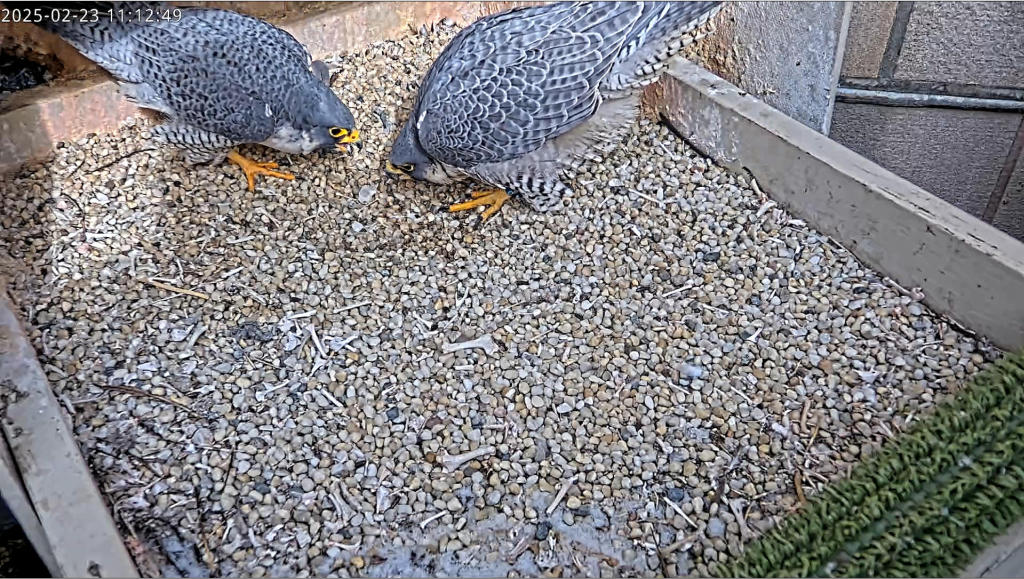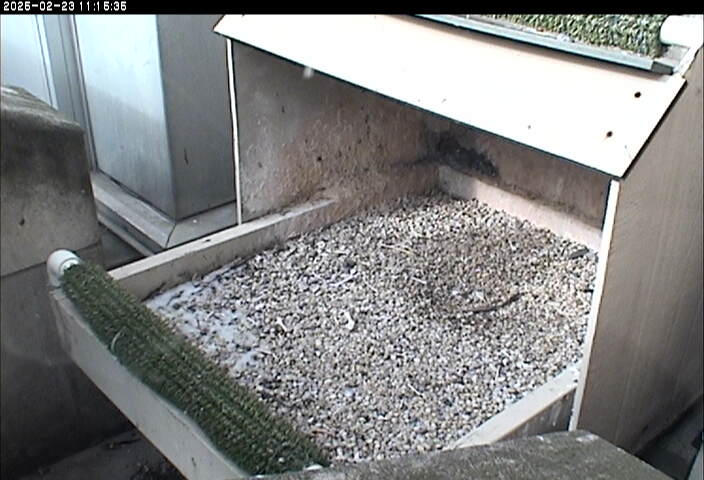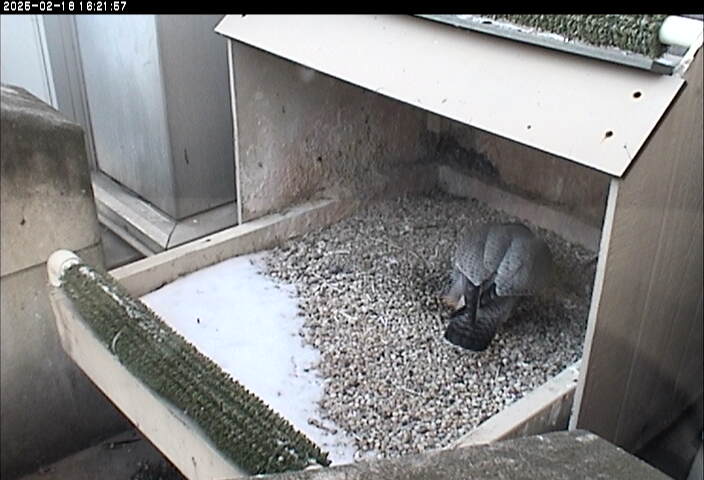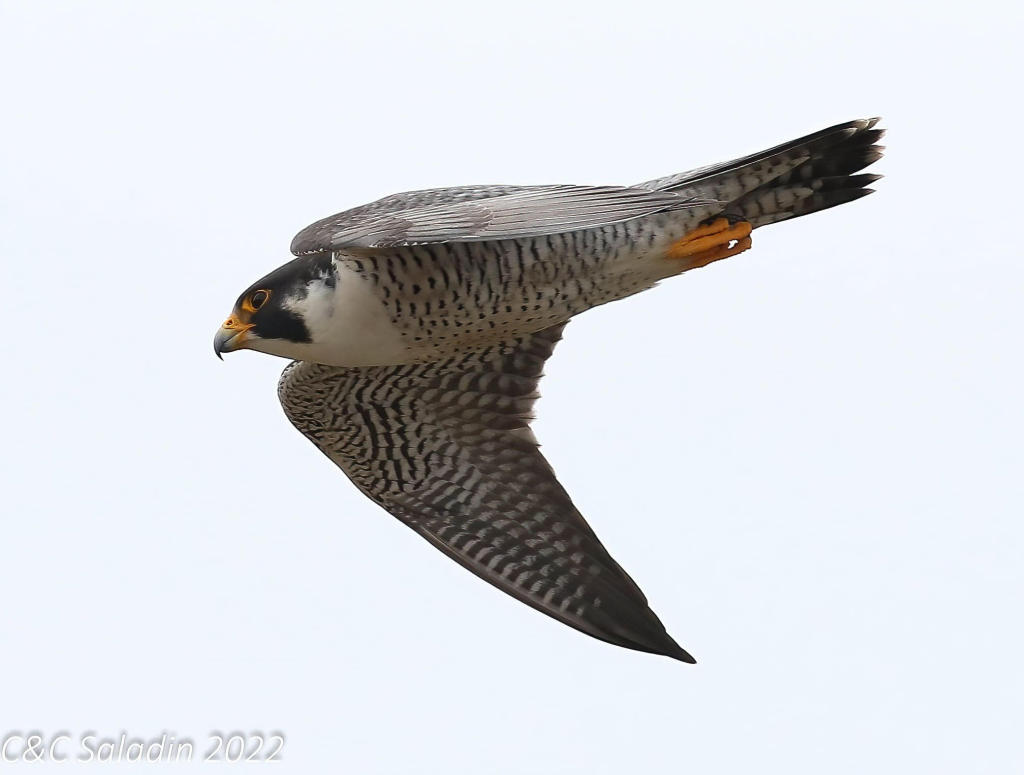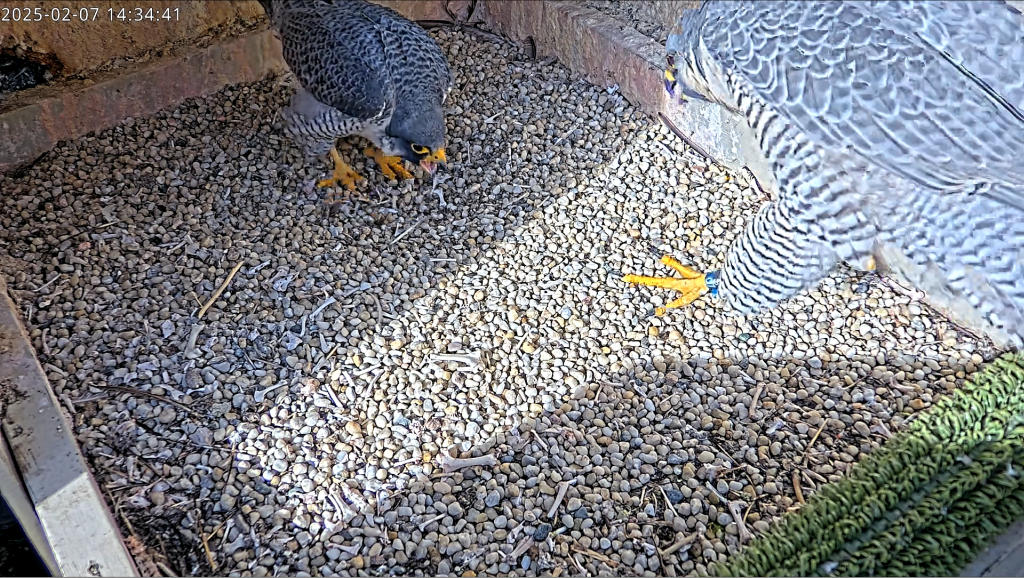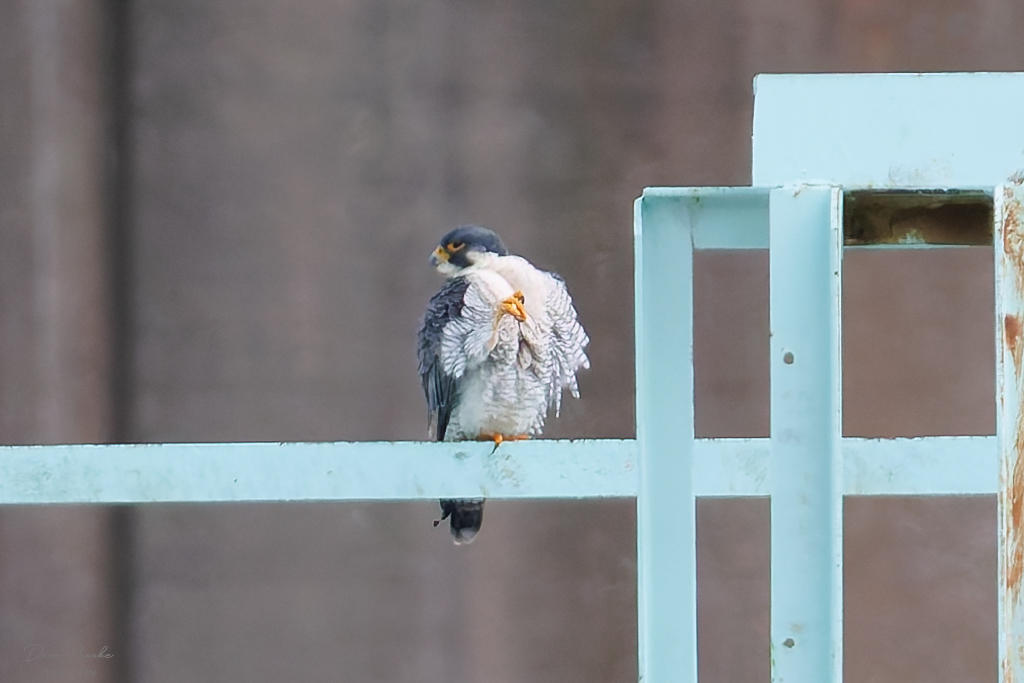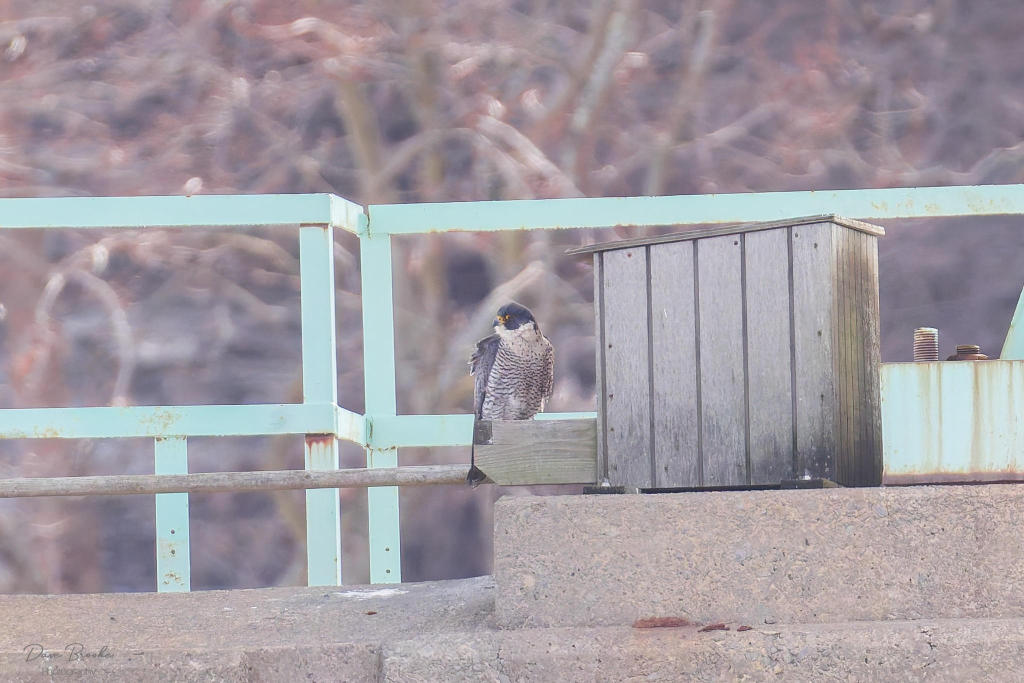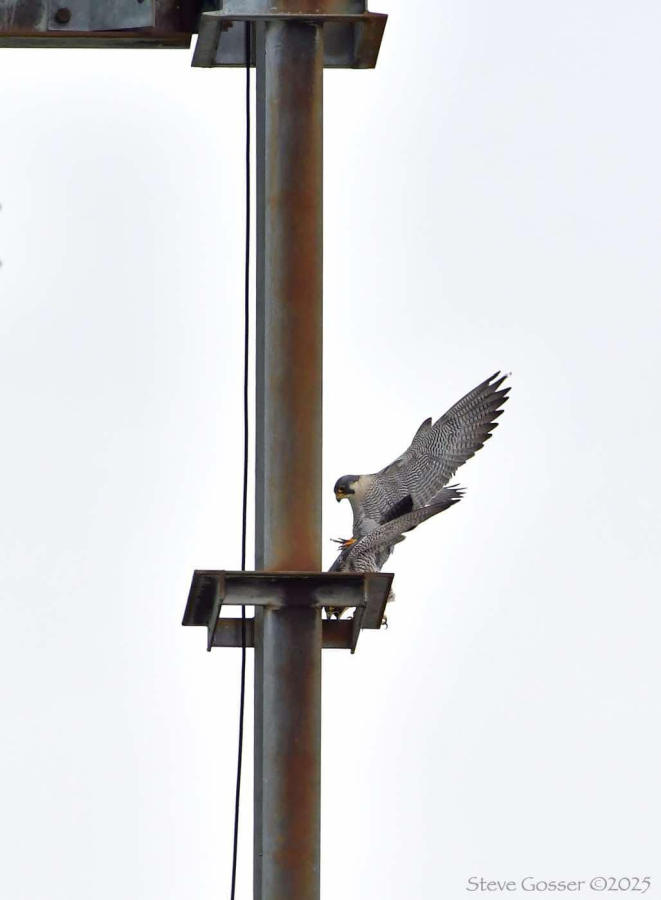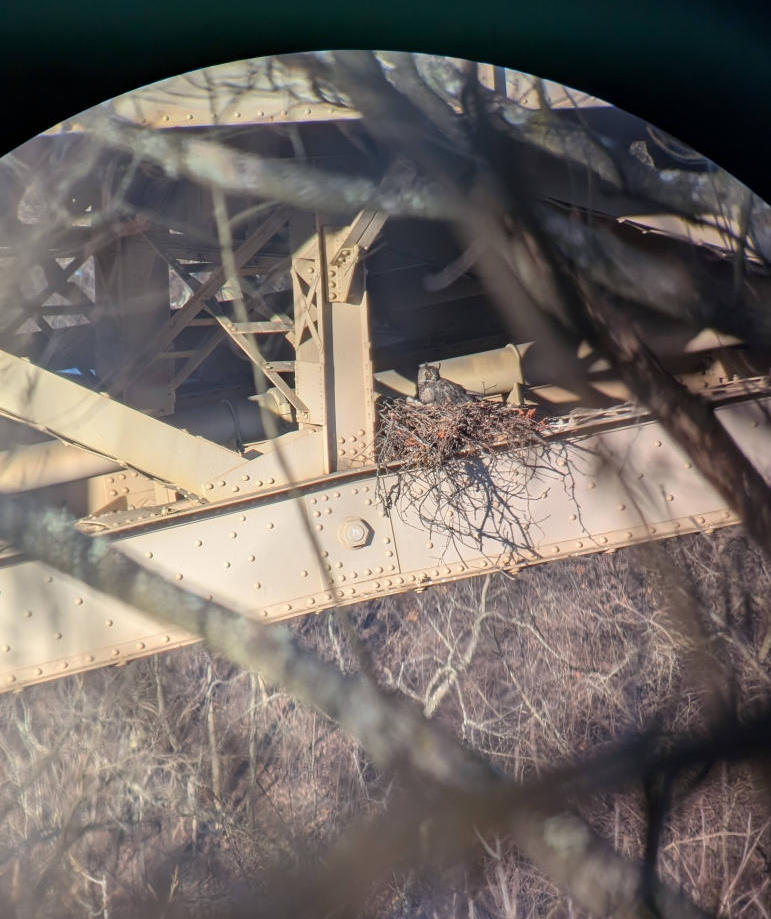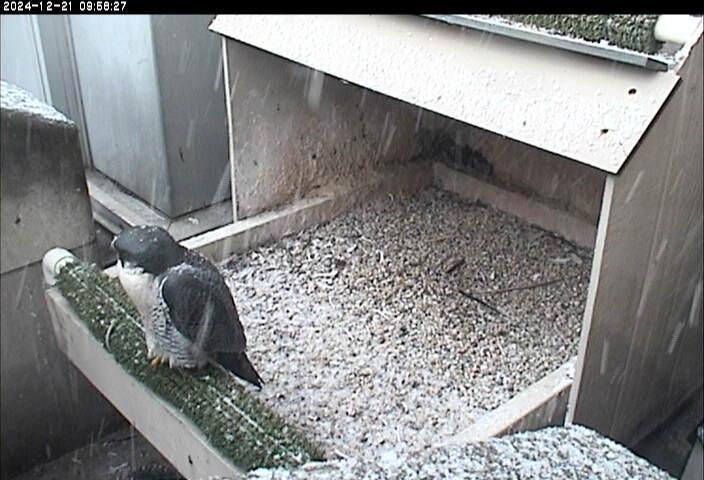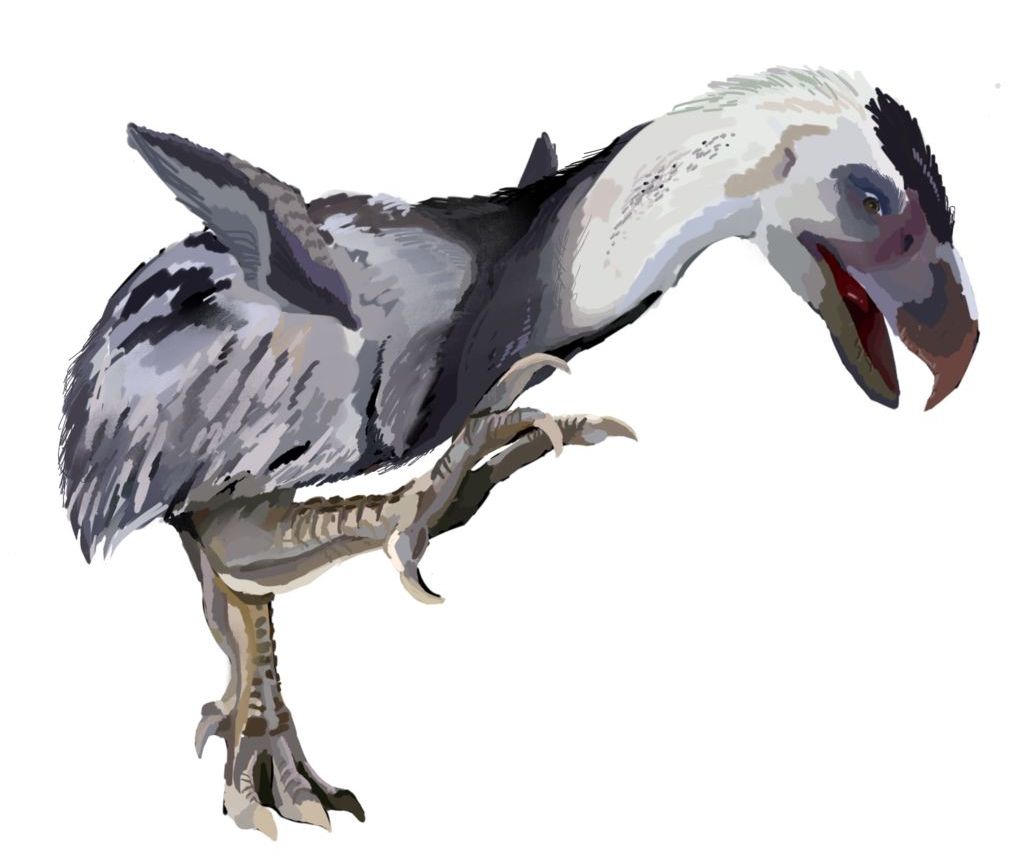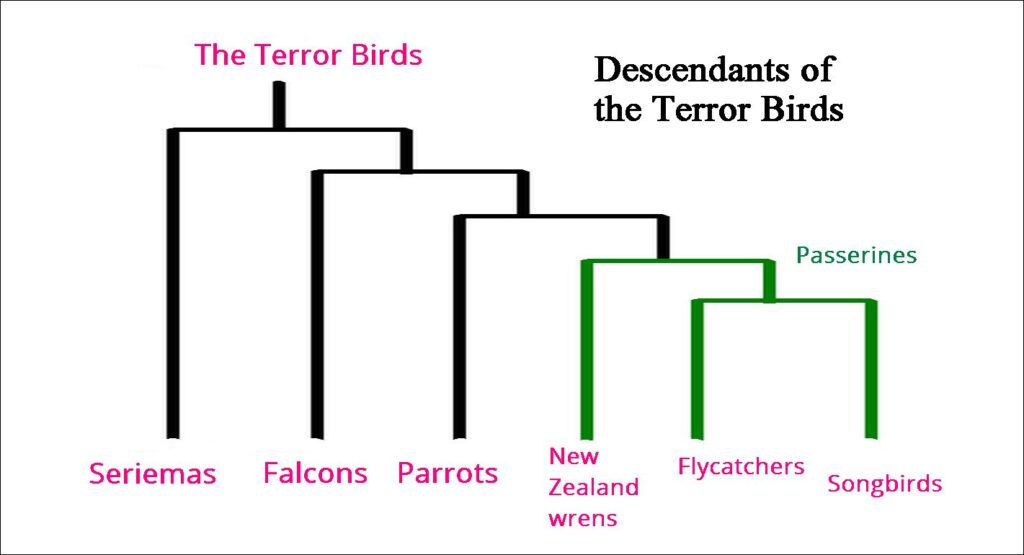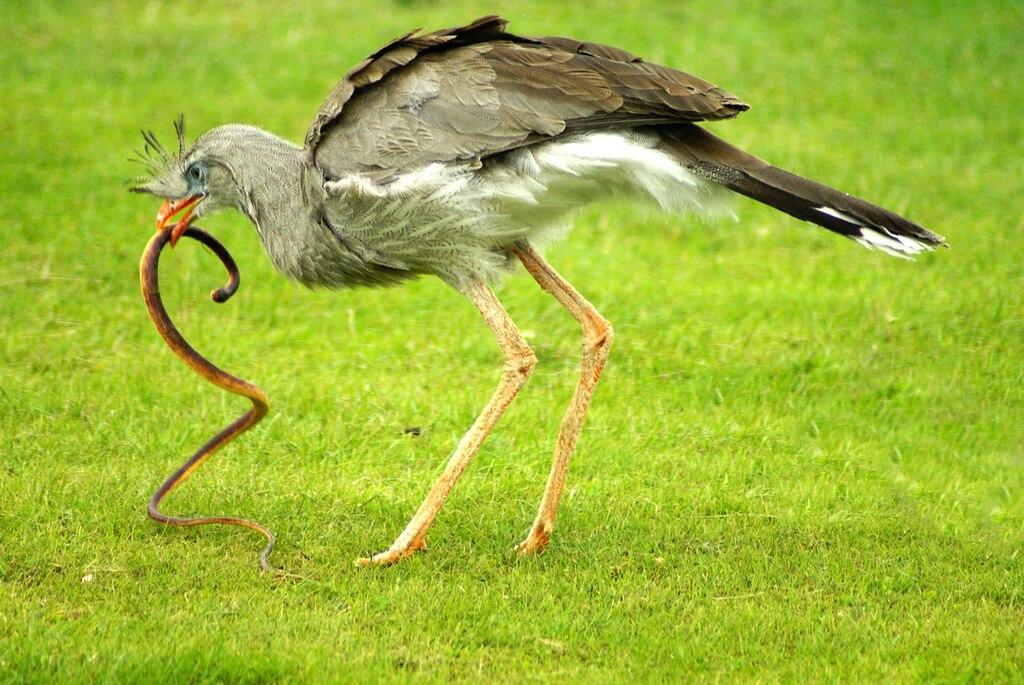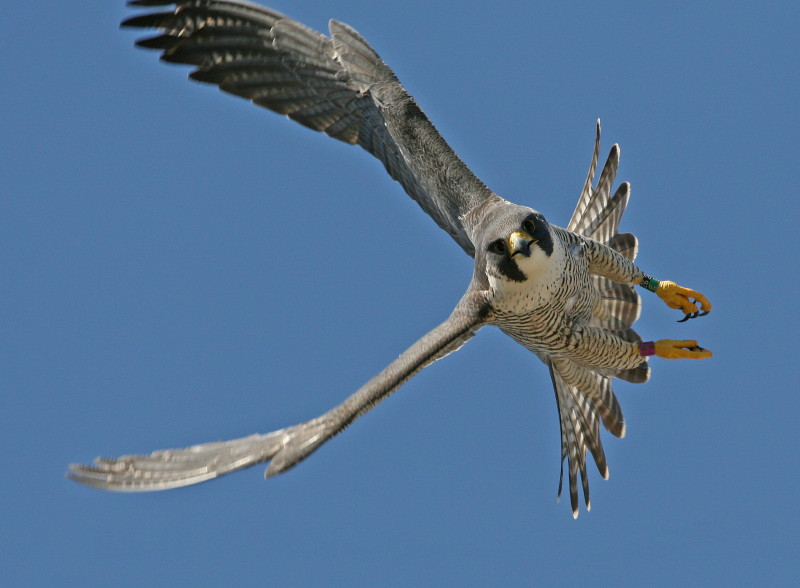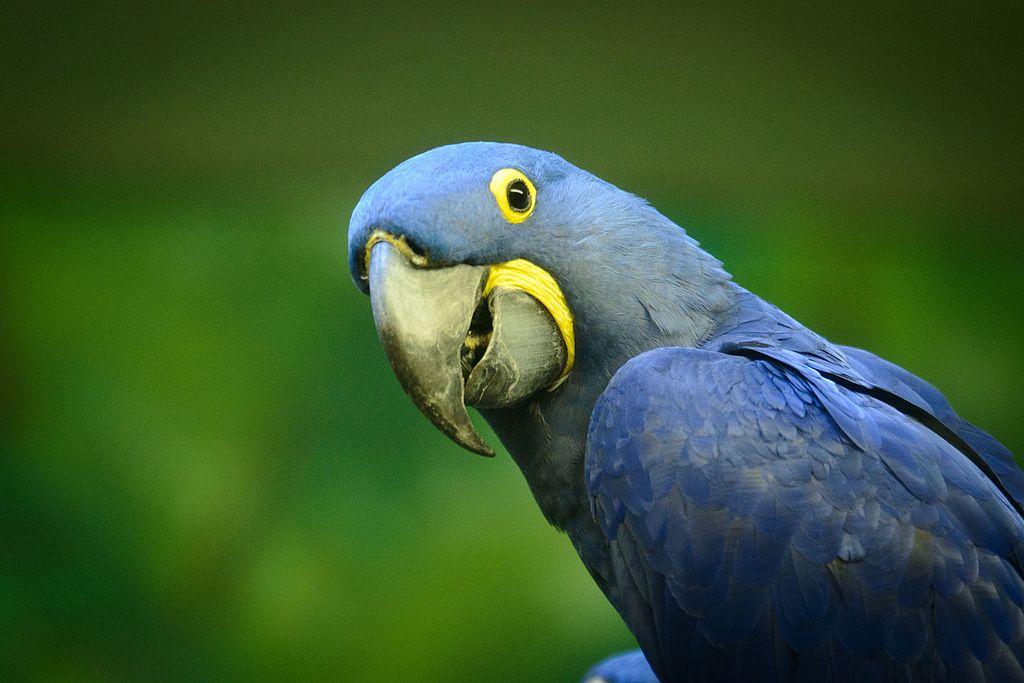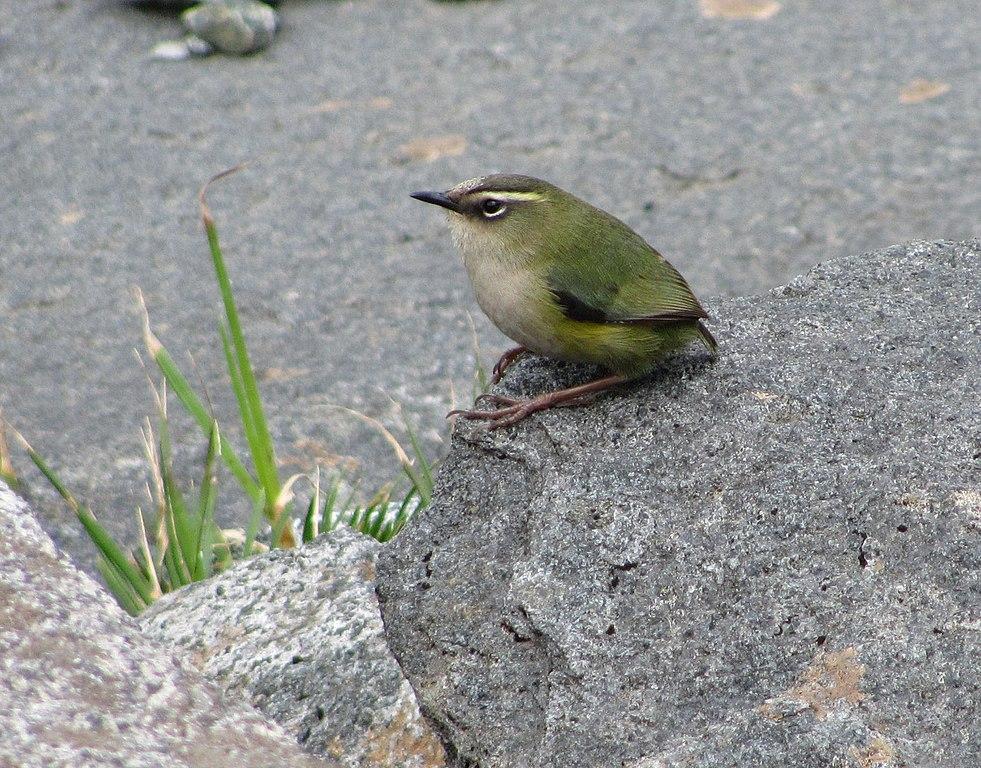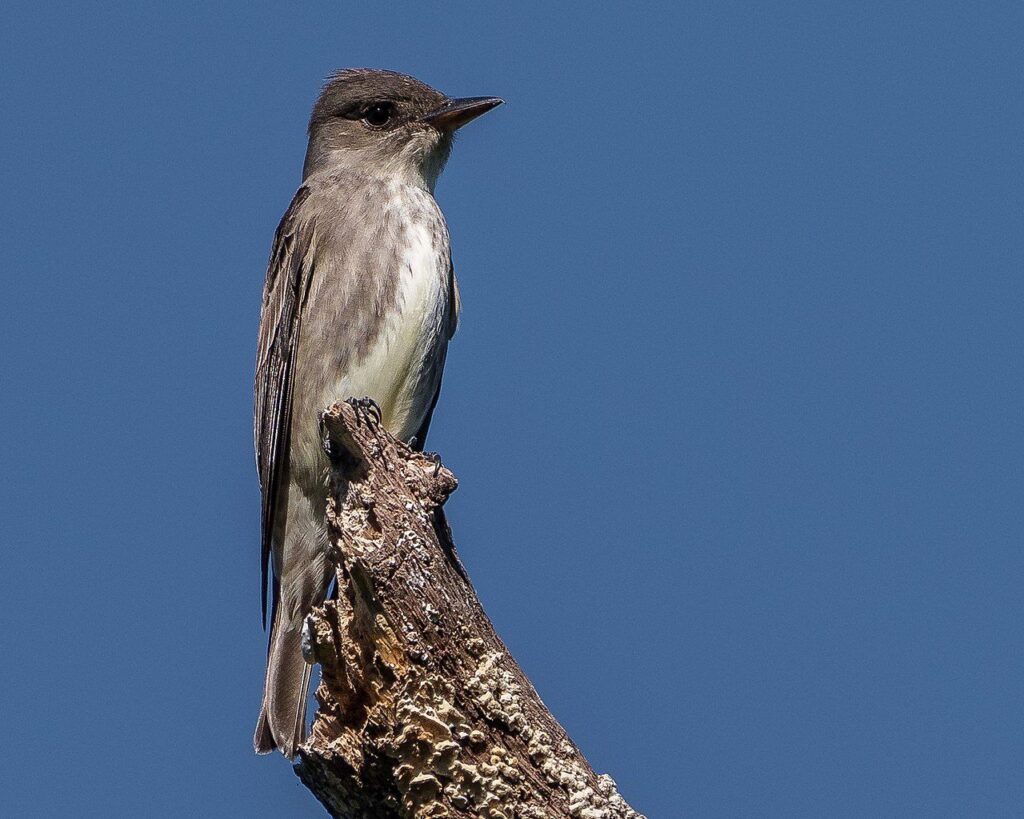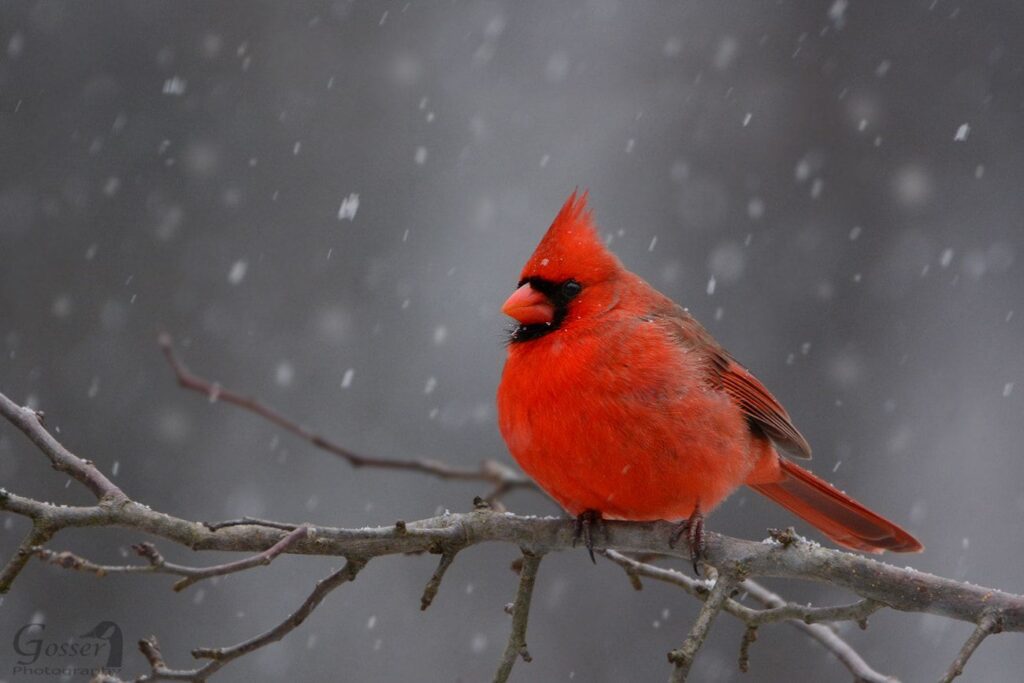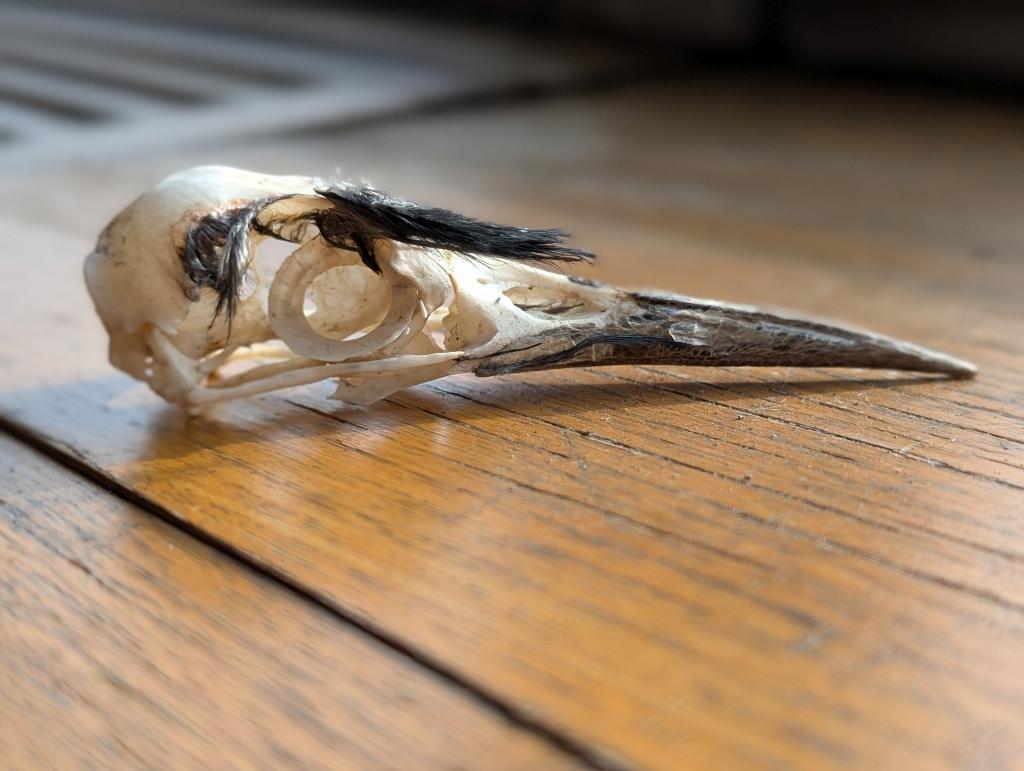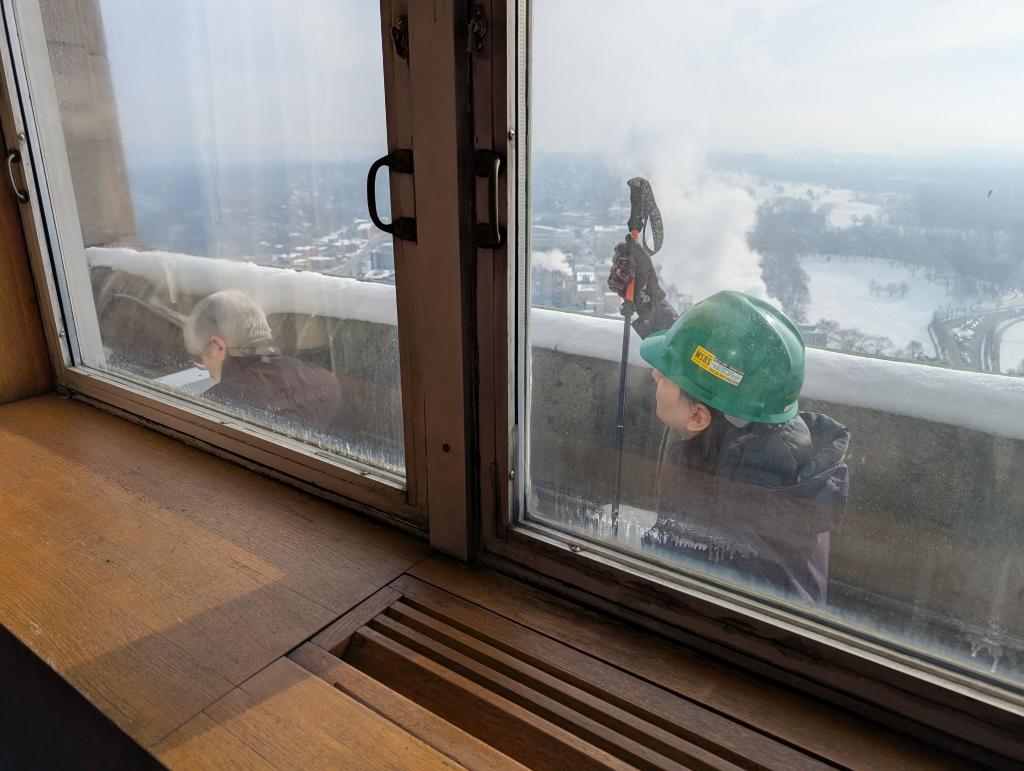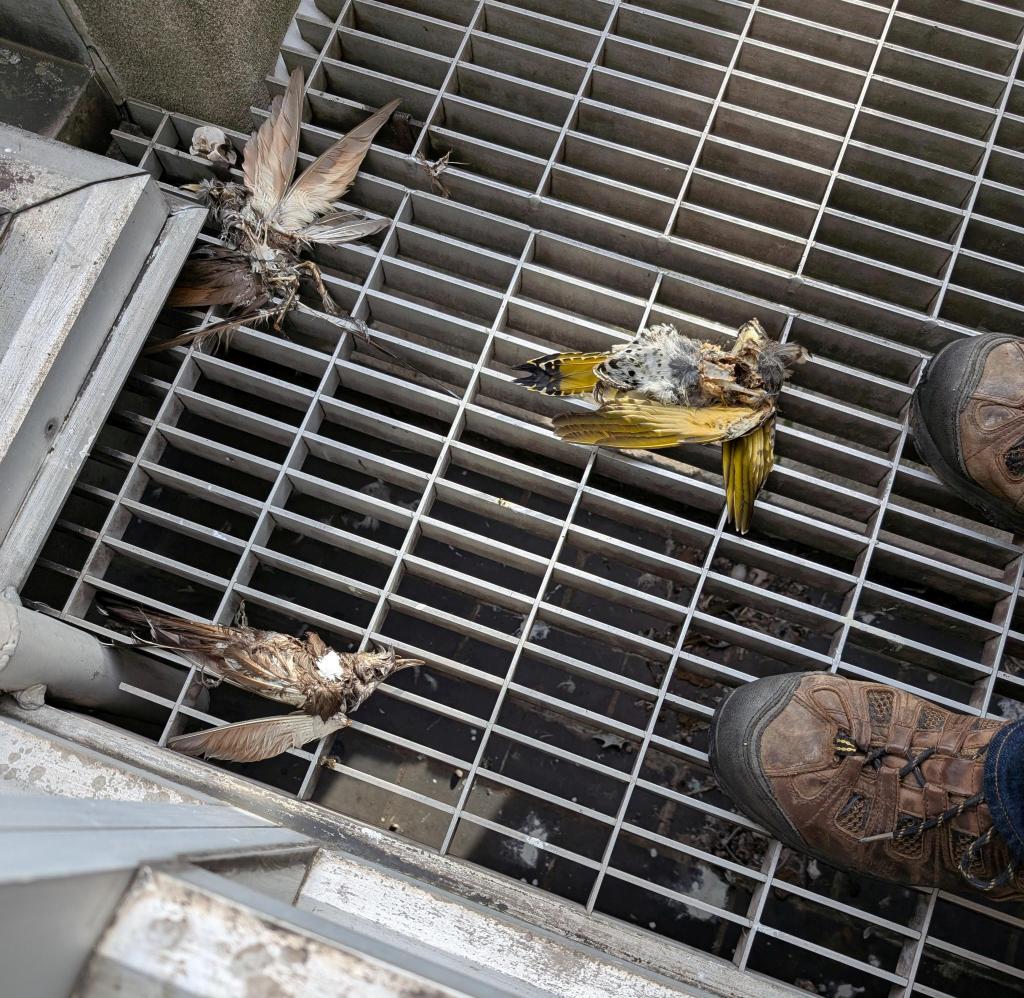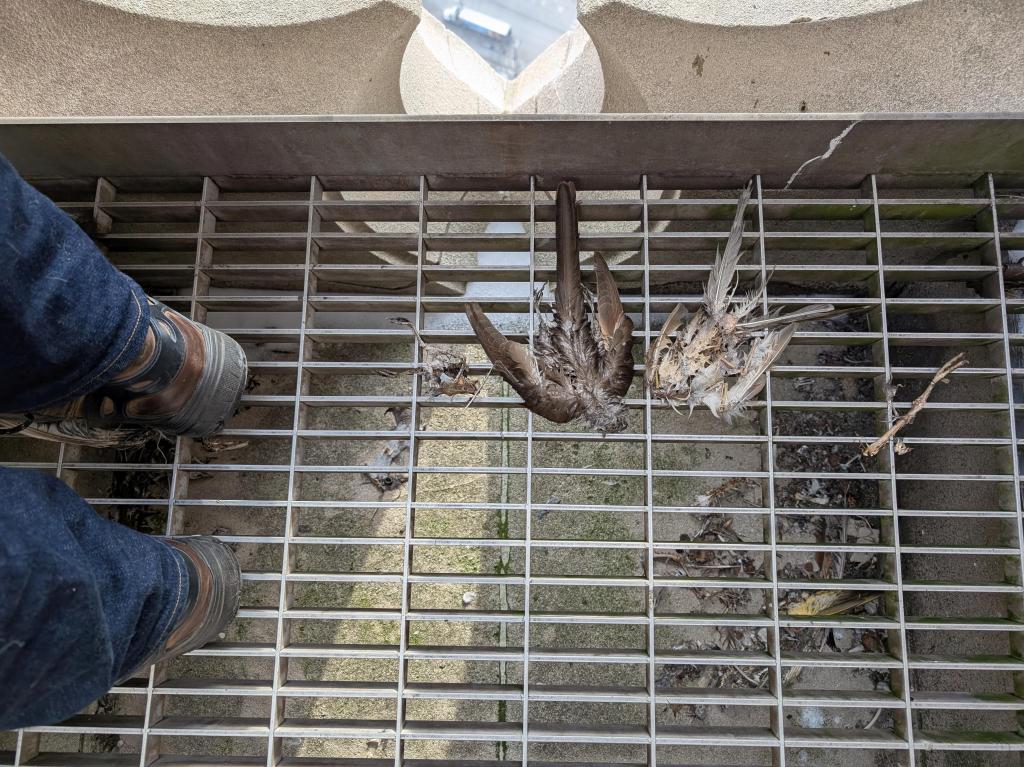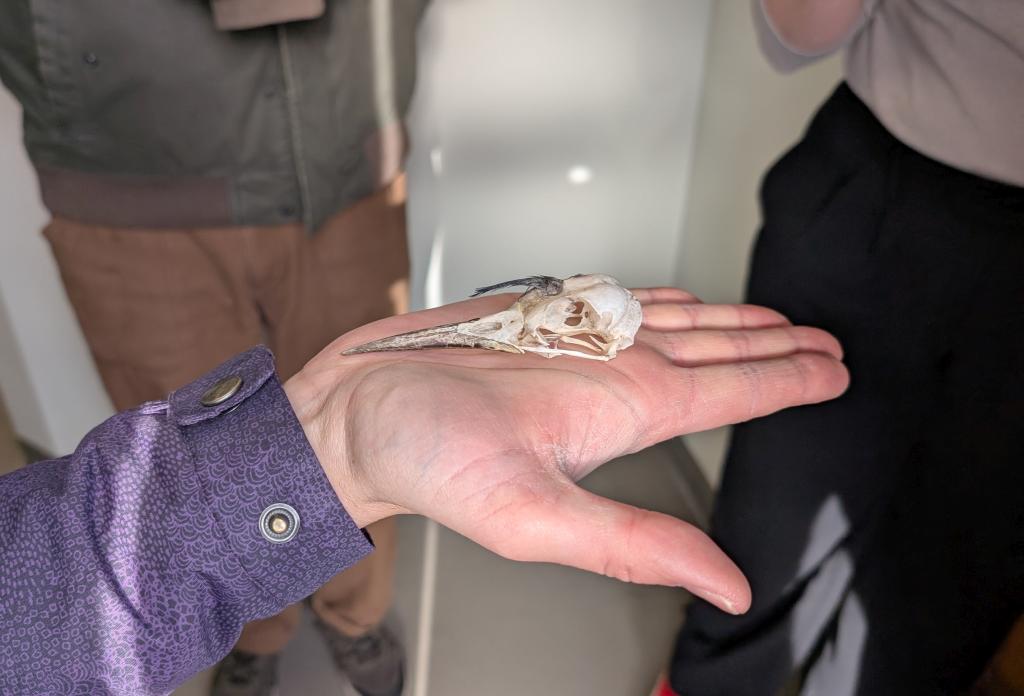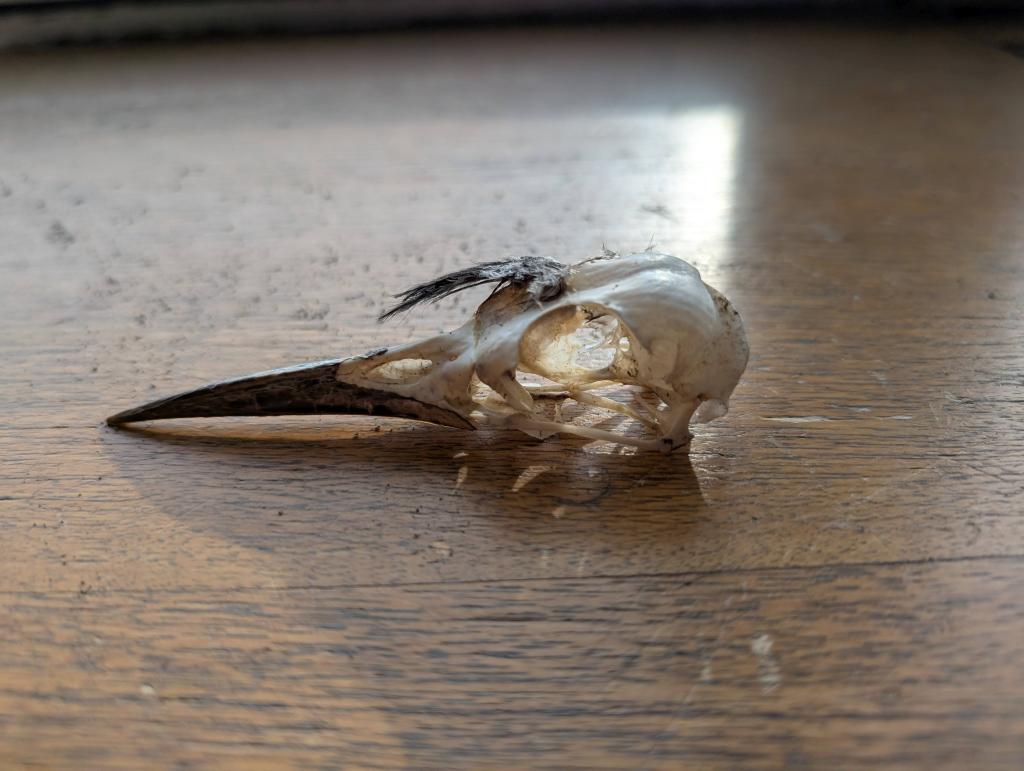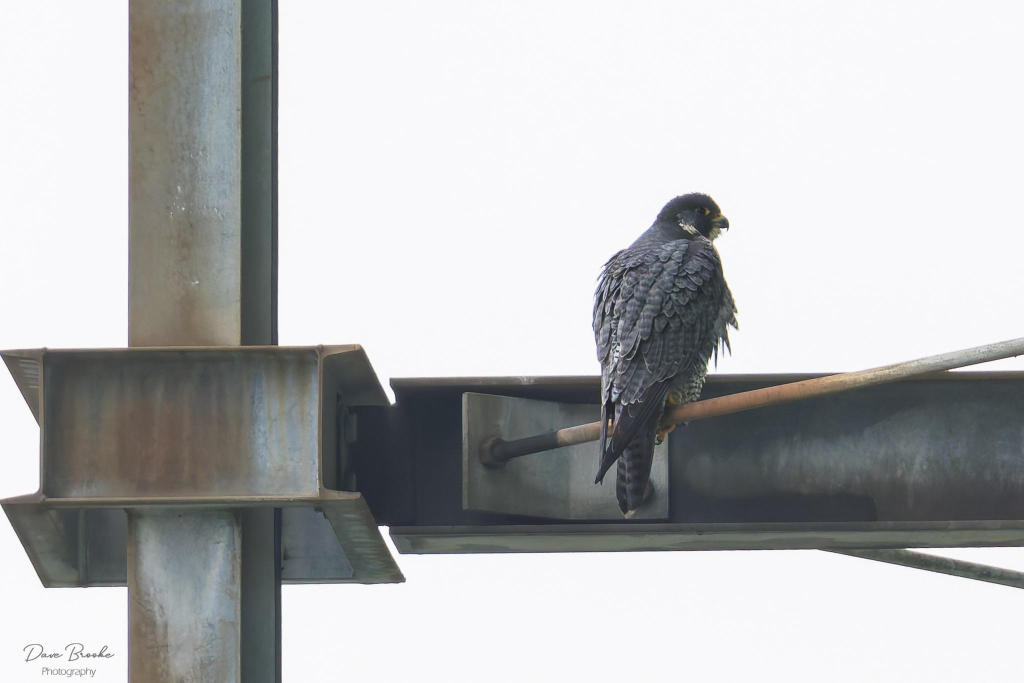
6 March 2025
There’s a lot of peregrine news in southwestern Pennsylvania right now as mated pairs prepare to nest. Our earliest couple is already on eggs at the Tarentum Bridge.
Tarentum Bridge, Allegheny River:
On Tuesday 4 March Dave Brooke saw the gray lump of a peregrine’s head laying low in the nestbox. This position usually indicates incubation is in progress, particularly if the bird does not move around.
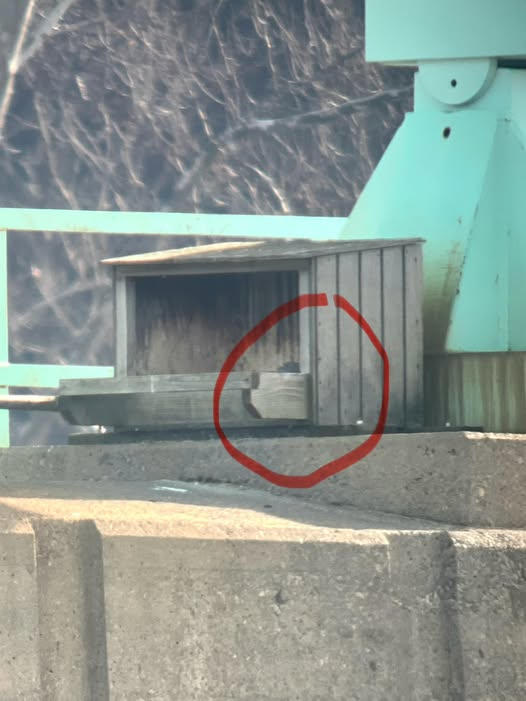
Last year the Tarentum Bridge female laid eggs around February 21st so it is very likely she’s on eggs right now at this location:
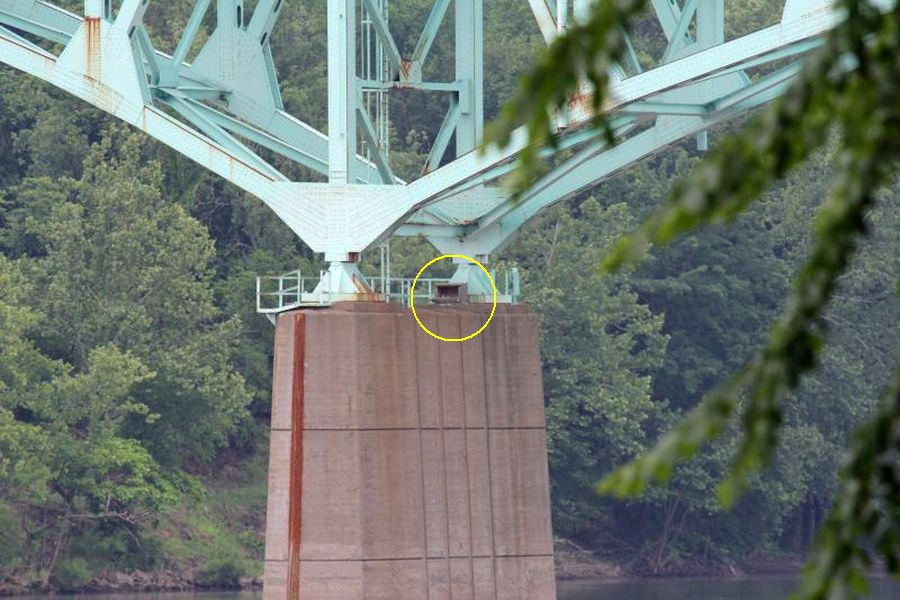
Cathedral of Learning, Univ of Pittsburgh:
Ecco and Carla are on the National Aviary falconcam several times a day as they court and prepare their nest. Yesterday their third courtship session lasted five minutes, then Carla puttered at the nest for an additional eight minutes. The length of both activities indicates how close they are to nesting.
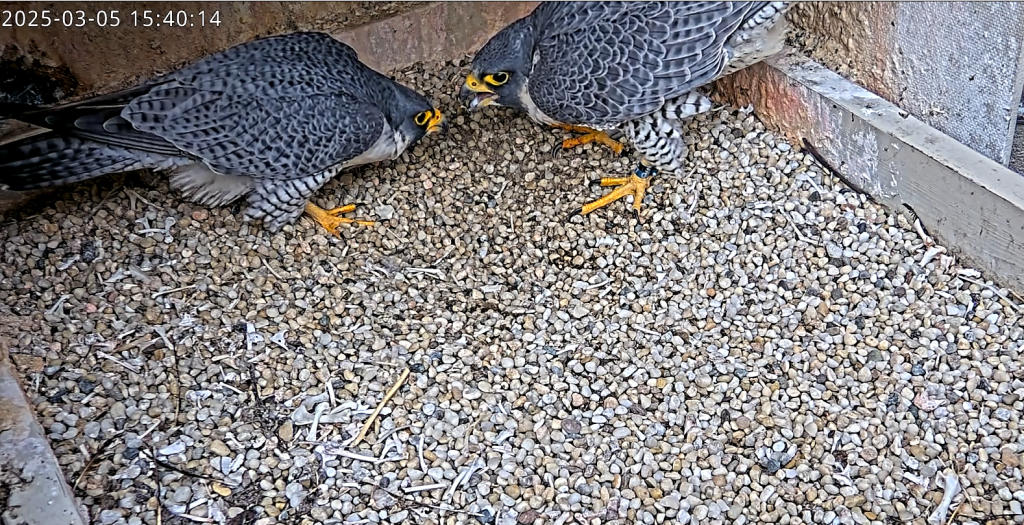
This 2+ minute video is just a small part of their late afternoon courtship session. The fade-to-black transition marks the moment when Carla begins puttering.
Watch for eggs in the next two to three weeks on the National Aviary falconcam at the University of Pittsburgh’s Cathedral of Learning.
East Liberty Presbyterian Church, Pittsburgh:
On 4 March Adam Knoerzer captured proof that the peregrines at East Liberty Presbyterian Church are planning to nest. Look closely and you can see the male fly in and mate with the female on the steeple.
Sewickley Bridge, Ohio River:
Happy news at the Sewickley Bridge! Yesterday, 5 March, I had to run an errand in Sewickley so I stopped by the Chestnut Street boat ramp (in the rain!), saw a peregrine at the nestbox and told Jeff Cieslak. After the rain ended Jeff found both peregrines at home, one in the nestbox and one on the pier near the nav light (yellow arrows).
Woo Hoo! Thank you, Jeff, for requesting this nestbox last year and thanks to PennDOT for installing it.
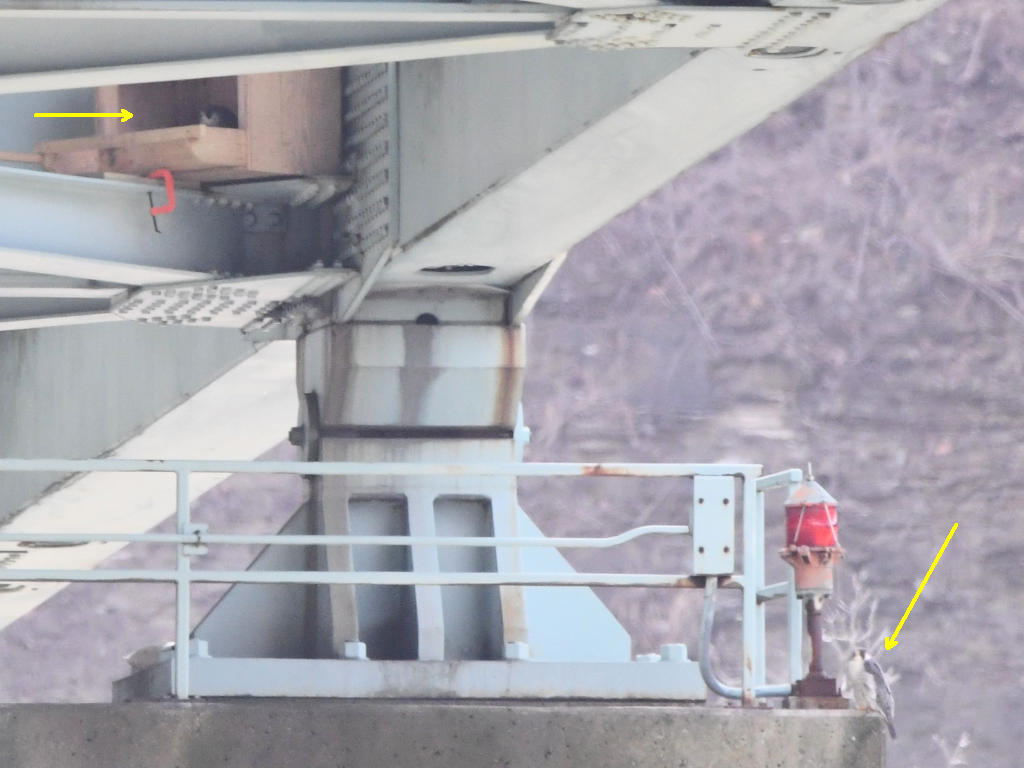
Spruce Run Bridge, Ohio River:
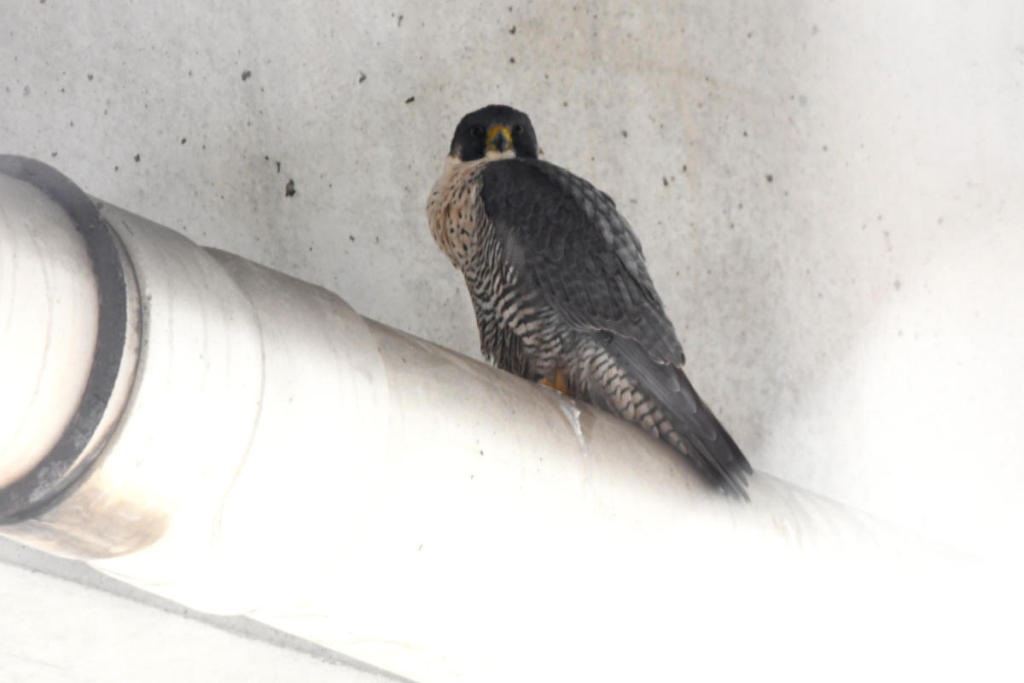
Jeff Cieslak checked for peregrines along the Ohio River throughout February. He found the female at her Spruce Run home on the 11th and what seems to be both of them on nearby Neville Island on the 25th.
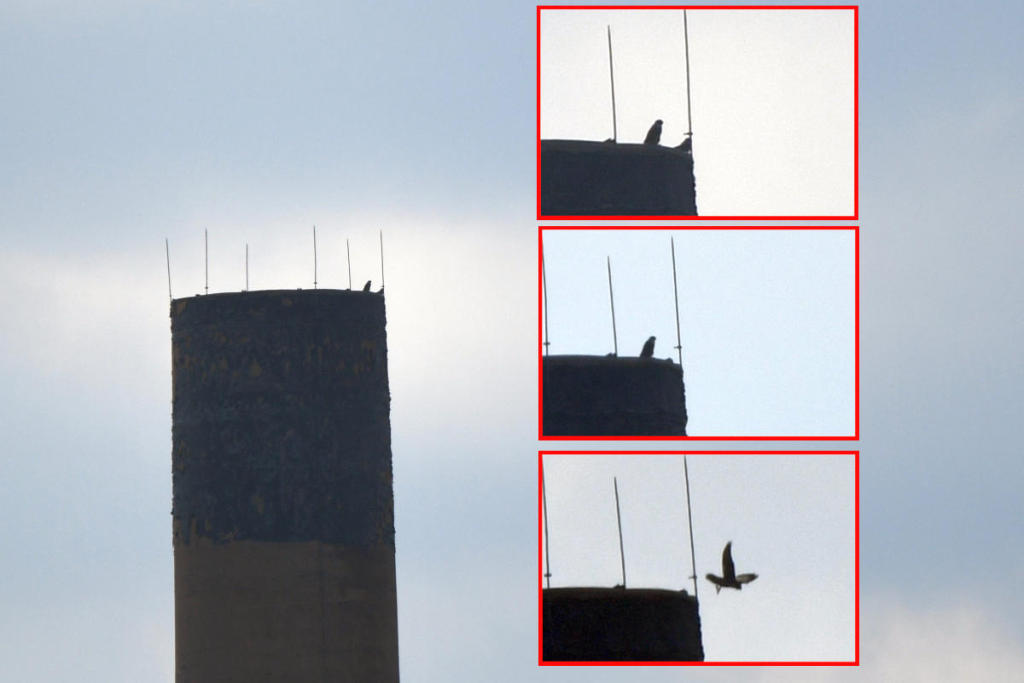
Eckert Street / McKees Rocks / Brunot Island, Ohio River:
The “Eckert Street peregrines,” who didn’t nest at Eckert Street last year, have so many places they could choose to nest that they are hard to keep track of. Last month Jeff Cieslak found one hanging out on the Alcosan smokestack and the other on a nearby power tower.
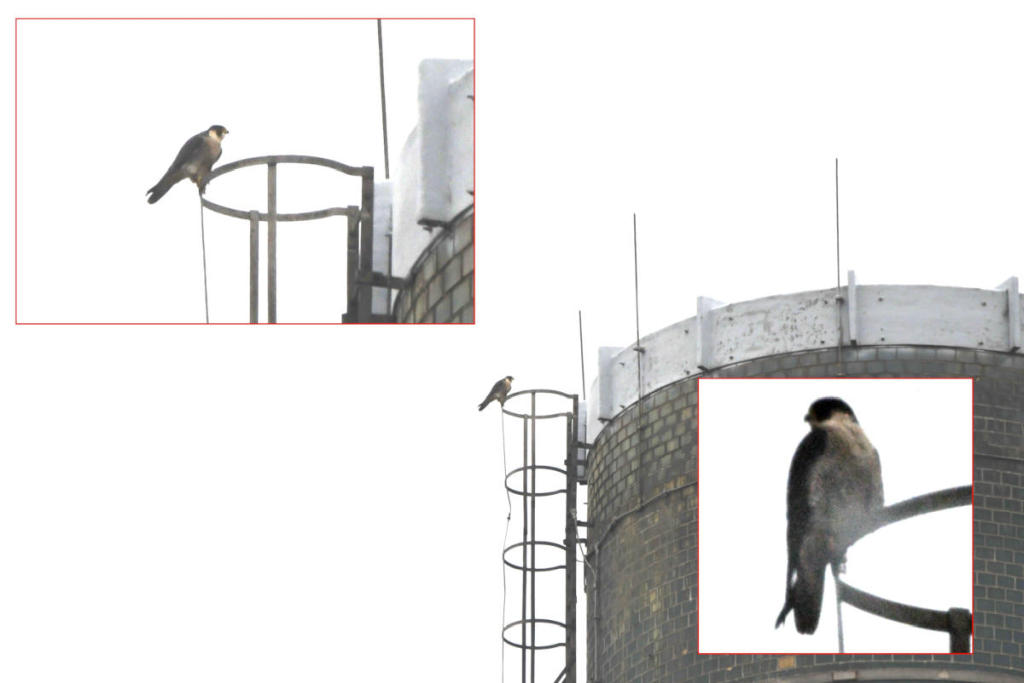
Jeff’s photo indicates the male is in immature plumage. Though young, there are records of male peregrines breeding at this age so we’ll have to wait and see what happens.
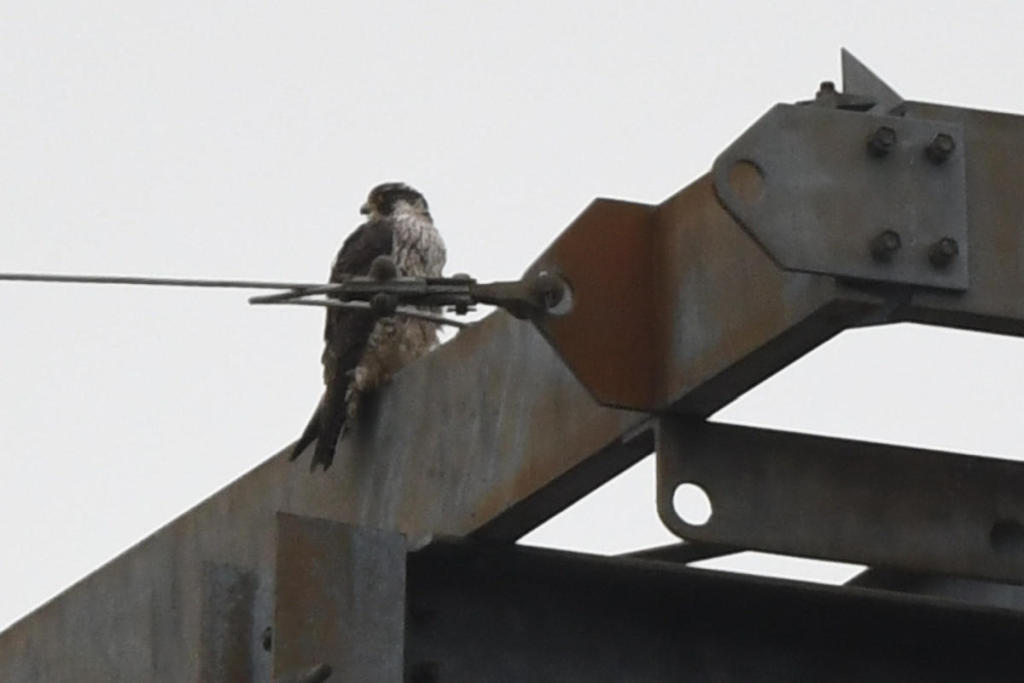
Westinghouse Bridge, Turtle Creek near Monongahela River:
On 25 February Dana Nesiti found both peregrines at home at the Westinghouse Bridge. He suspects they courted near the scrape while he was there, though he couldn’t see tit.
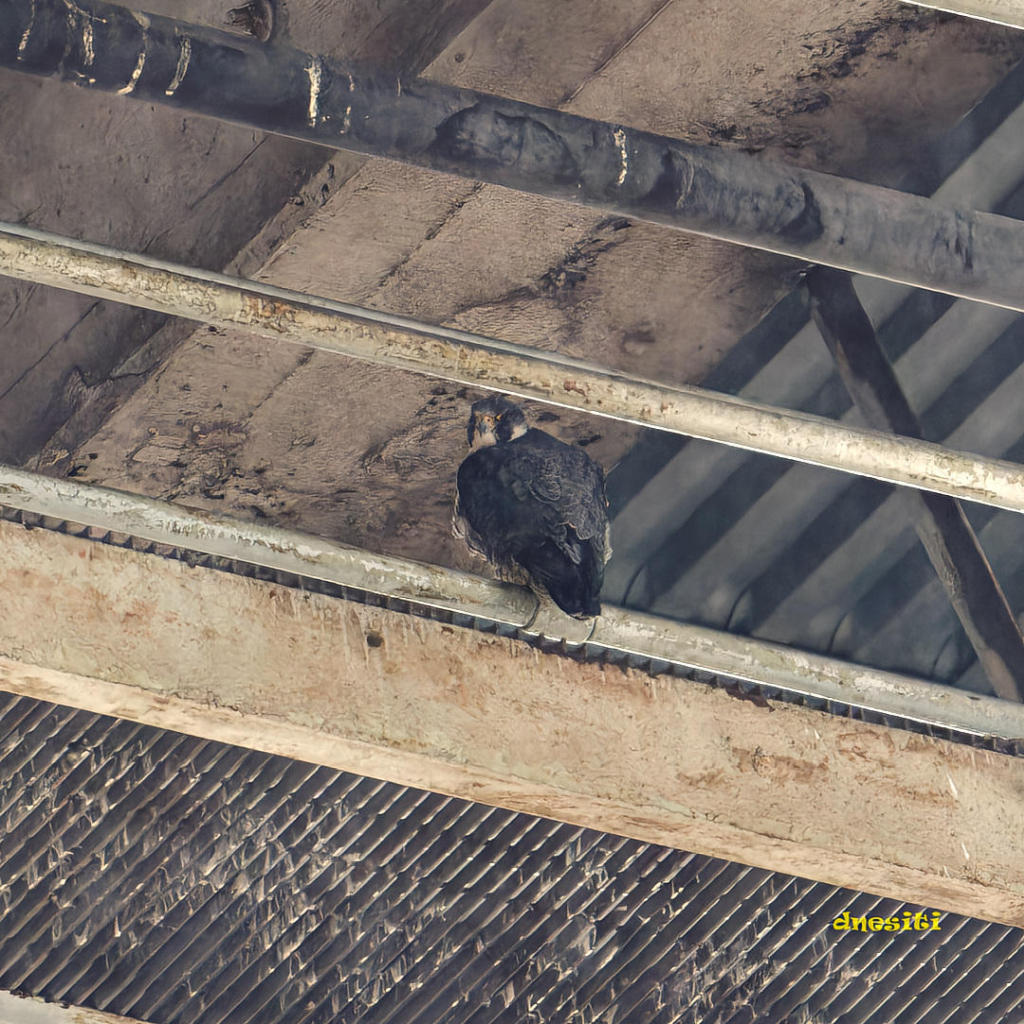
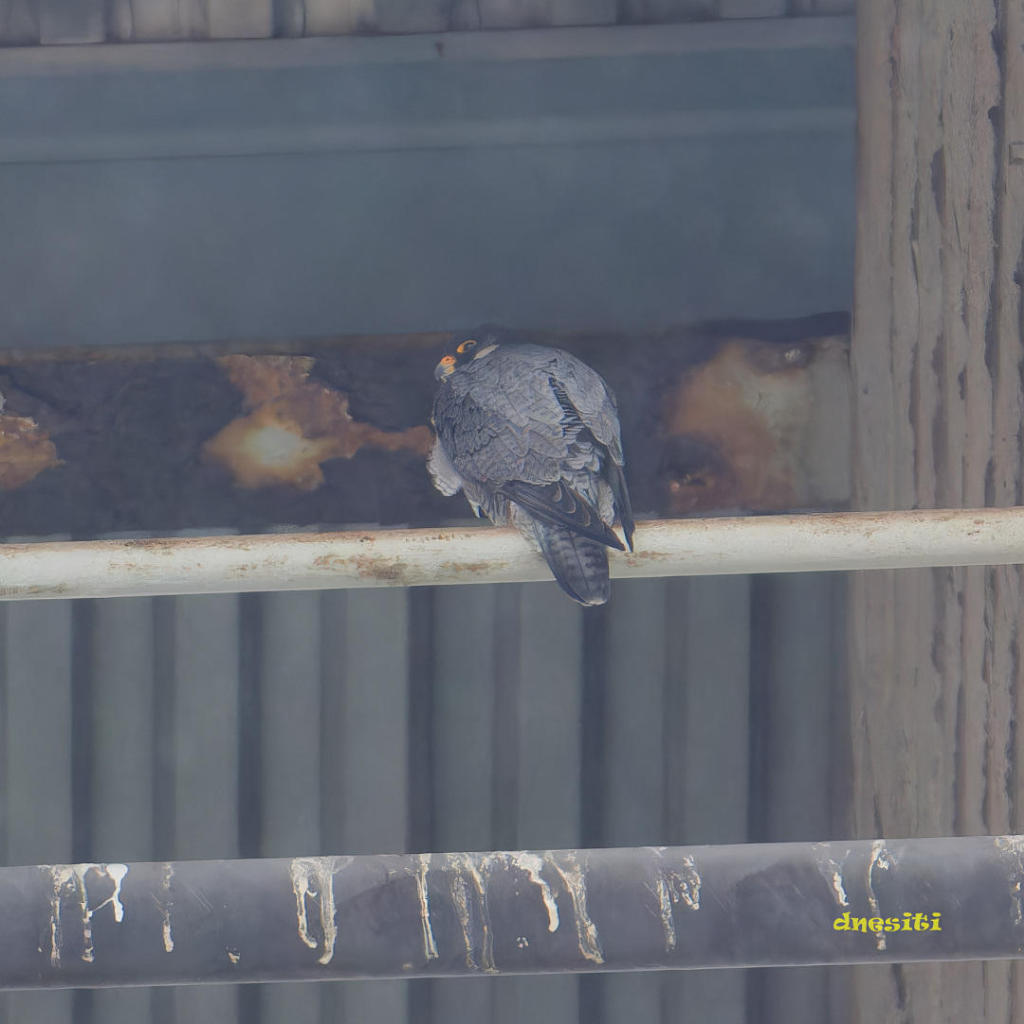
PEREGRINE SUMMARY FOR SOUTHWEST PA: All the potential sites and latest sightings are listed below. Help fill in the blanks by visiting one of these locations. Leave a comment if you need my help in finding the site.
